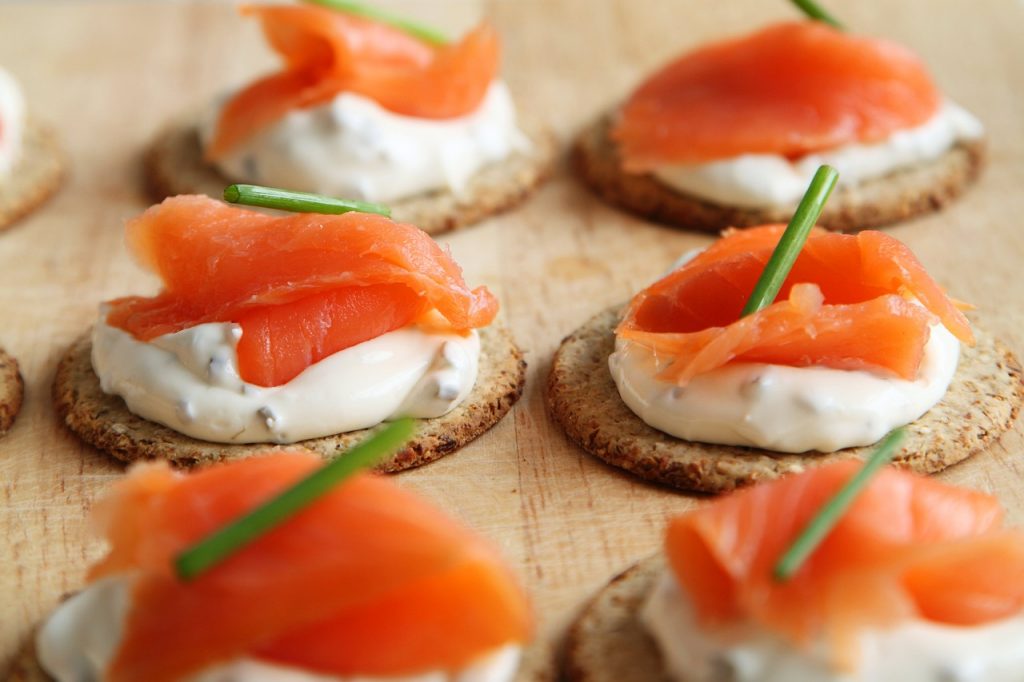We often hear people say that eating fish will make you smarter. Fish is rich in omega-3 fatty acids, protein, vitamins, and minerals, which benefit human health. Among them, mackerel, salmon, and sardines have the highest Omega-3 content, and eating them once a week is recommended.
London, UK (Merxwire) – Fish is rich in vitamins, minerals, and omega-3 fats. It is also one of the sources of high-quality protein intake for the human body. But with so many types of fish, which fish is the best, and how much should we eat? Don’t worry; according to the British National Health Service (National Health Service, NHS), it is recommended that adults consume at least two servings of fish a week (one serving is about 140 grams), and one serving should preferably be oily fish.
Edible fish can be divided into white fish and oily fish according to the level of fat content. White-fleshed fish have white, low-fat flesh like cod and grouper; oily fish have darker, fatty meat, like mackerel, salmon, and eel. NHS England recommends that a healthy balanced diet include at least two servings of fish per week, one oily. However, only a tiny proportion of people meet this recommendation; according to the survey, only 27% of adults and 6% of children meet the weekly recommendation of eating oily fish.
Due to the high content of omega-3 fatty acids in oily fish (especially DHA and EPA), DHA helps to maintain vision and delay brain and vision degeneration; EPA is beneficial to cardiovascular or chronic diseases. The following are the top three oily fish with the highest recommended content according to omega-3 fatty acids:
1. Mackerel: Omega-3 content 4753 milligrams (mg)
Mackerel is small, fatty, tasty, lightly salted, and delicious fried or grilled. Mackerel is high in nutritional value, rich in omega-3 fatty acids and a good source of vitamin D, B12, selenium, and phosphorus. Contains 500% of the Reference Daily Intake (RDI) for vitamin B12 and 130% of selenium per 100g serving.
2. Salmon: Omega-3 content 3678 milligrams (mg)
Salmon is considered one of the healthiest seafood choices. It provides a good amount of omega-3 fatty acids and a good source of protein and vitamin D. Plus, it’s rich in selenium and B12, making it a very healthy seafood.
Salmon is rich in nutrition, relatively easy to cook, and full of variety. For example, slice it directly as salmon sashimi, or apply some salt or miso to turn it into grilled salmon. You can also cut it into pieces and throw it into the soup to turn it into salmon miso soup, which is nutritious and delicious.
3. Sardines: Omega-3 content 2517 milligrams (mg)
Hailing from the Atlantic, Pacific, and Mediterranean regions, sardines are small, oily fish that are nutritious and rich in omega-3 fatty acids. They’re also a good source of protein, vitamin B12, vitamin D, and minerals like calcium and selenium.
If you are considering what brand of fish oil to buy, you should eat more oily fish. Eating fish directly is the best and healthiest way to get Omega-3. Just according to the recommendations of the Seafood Guide, when eating fish, you should pay attention to eating seafood that has less impact on the environment and is not overfished, or the wild population is still sufficient so that you can enjoy the food while maintaining the sustainable safety of the ocean.















